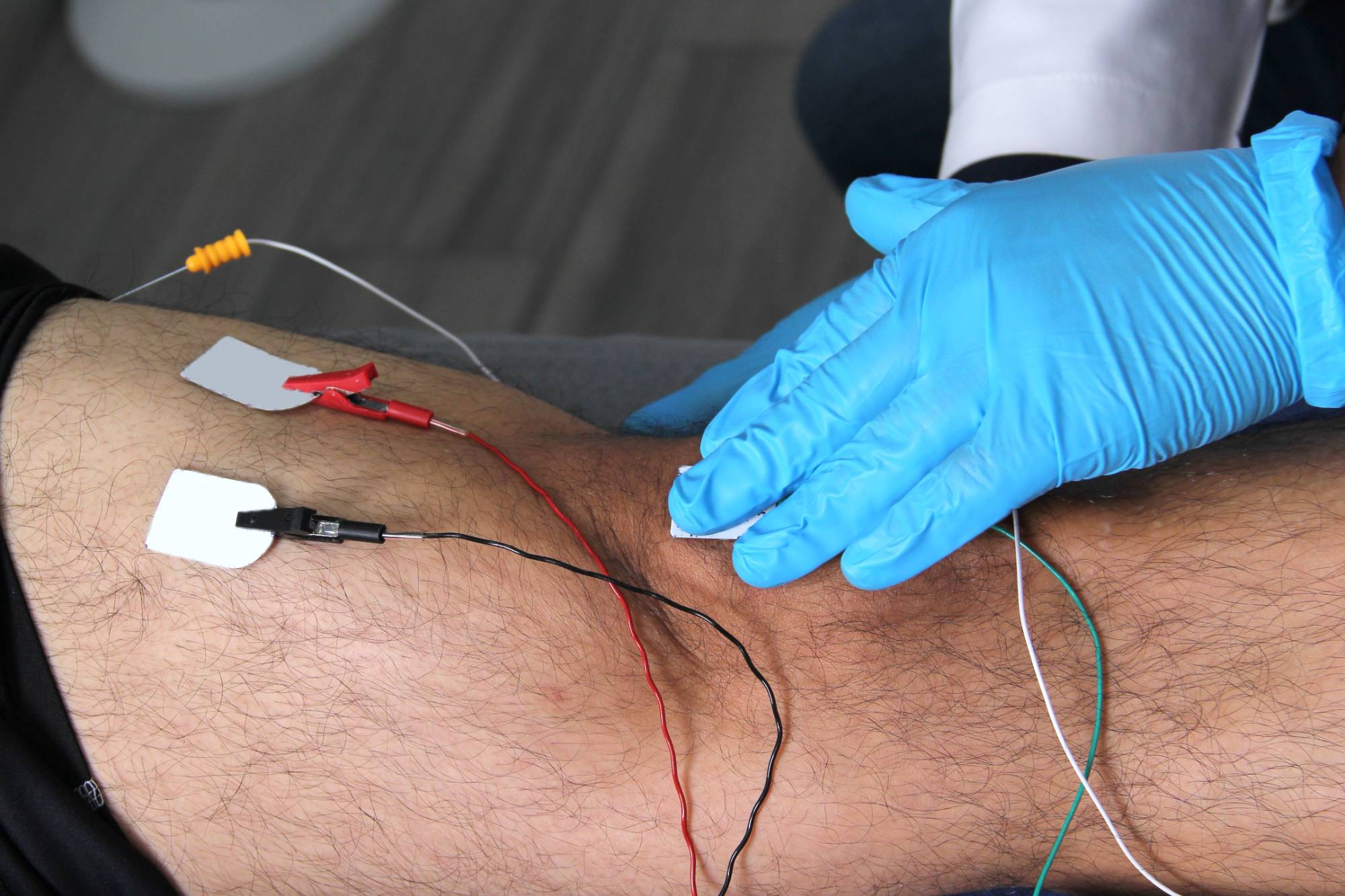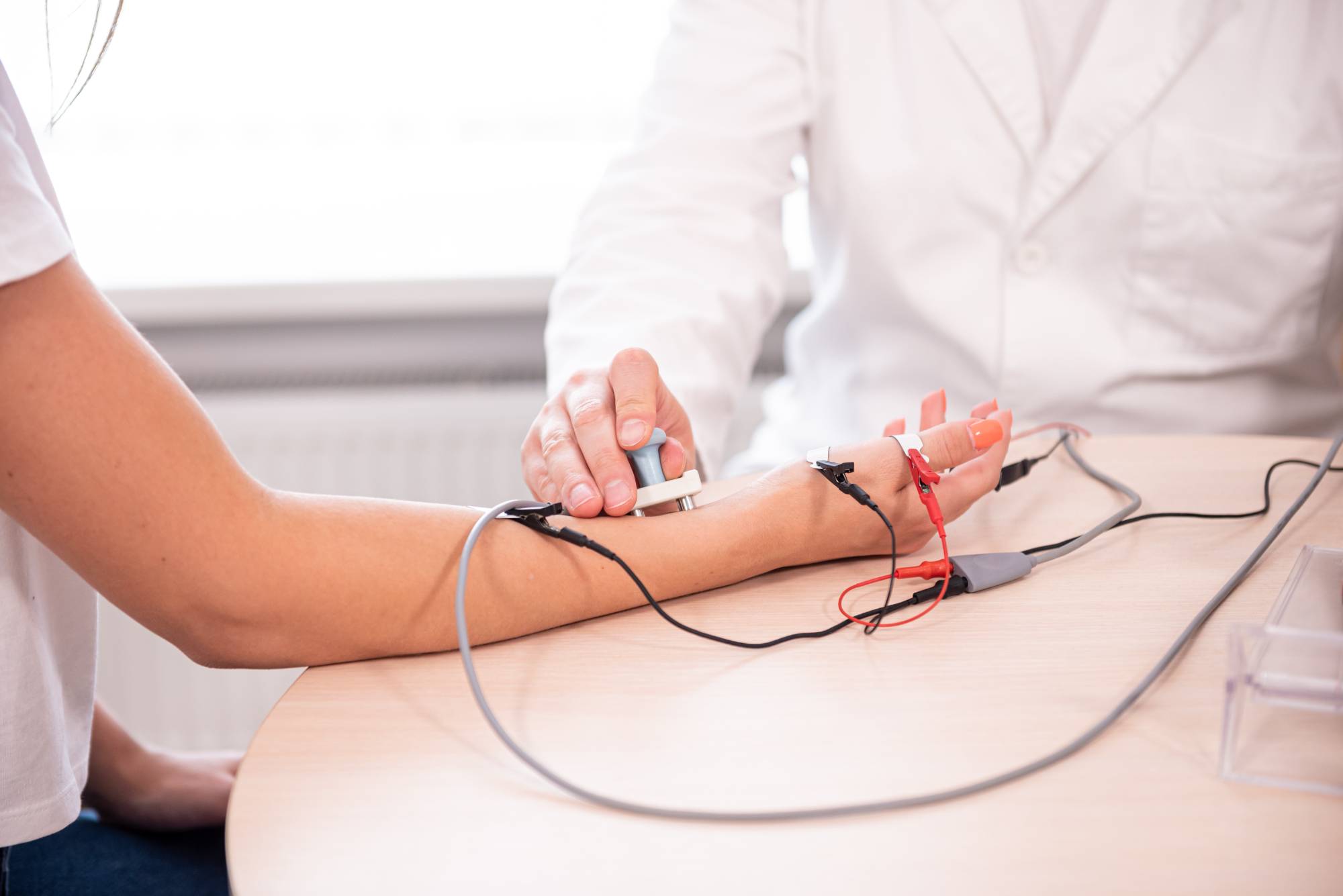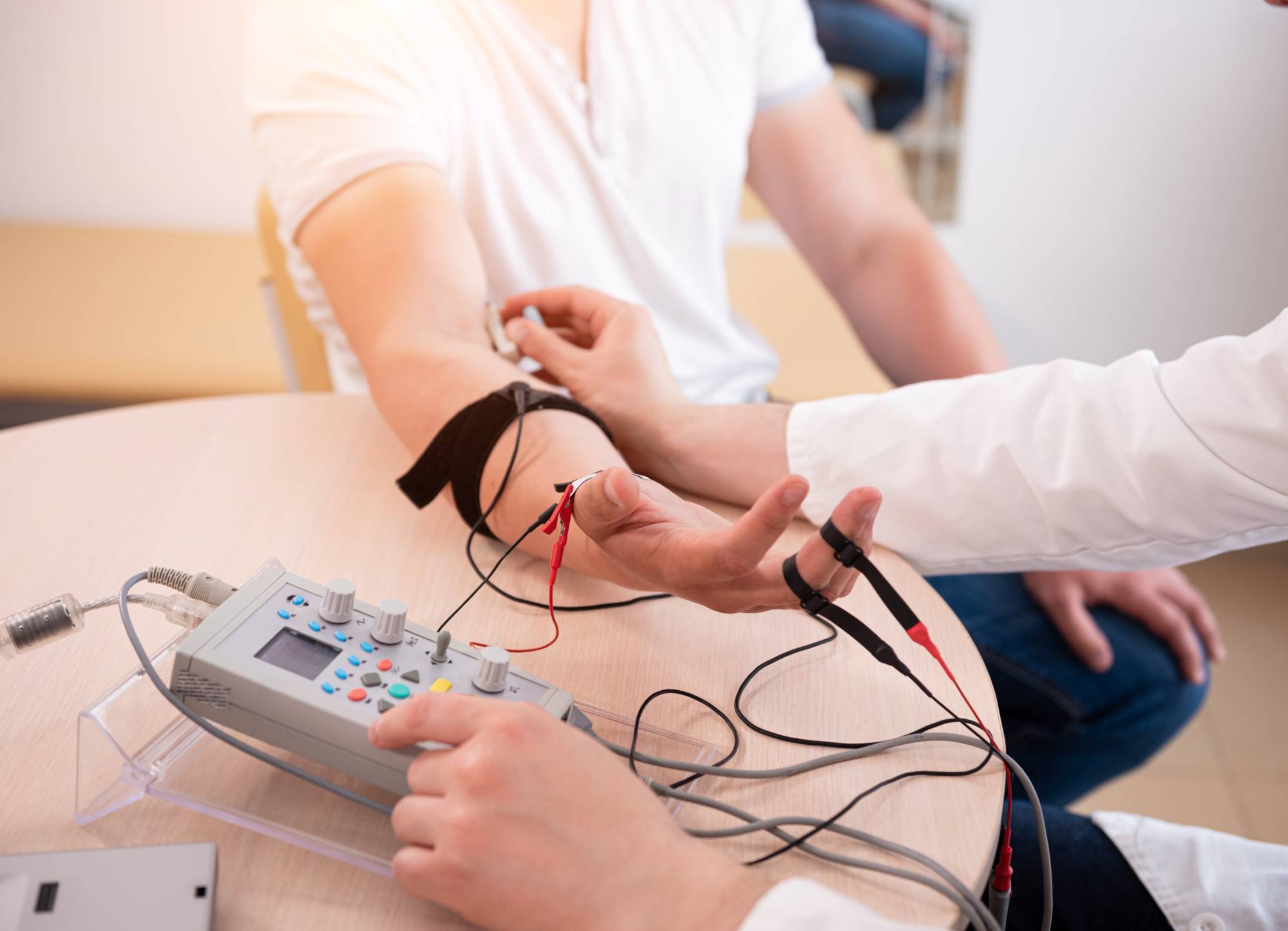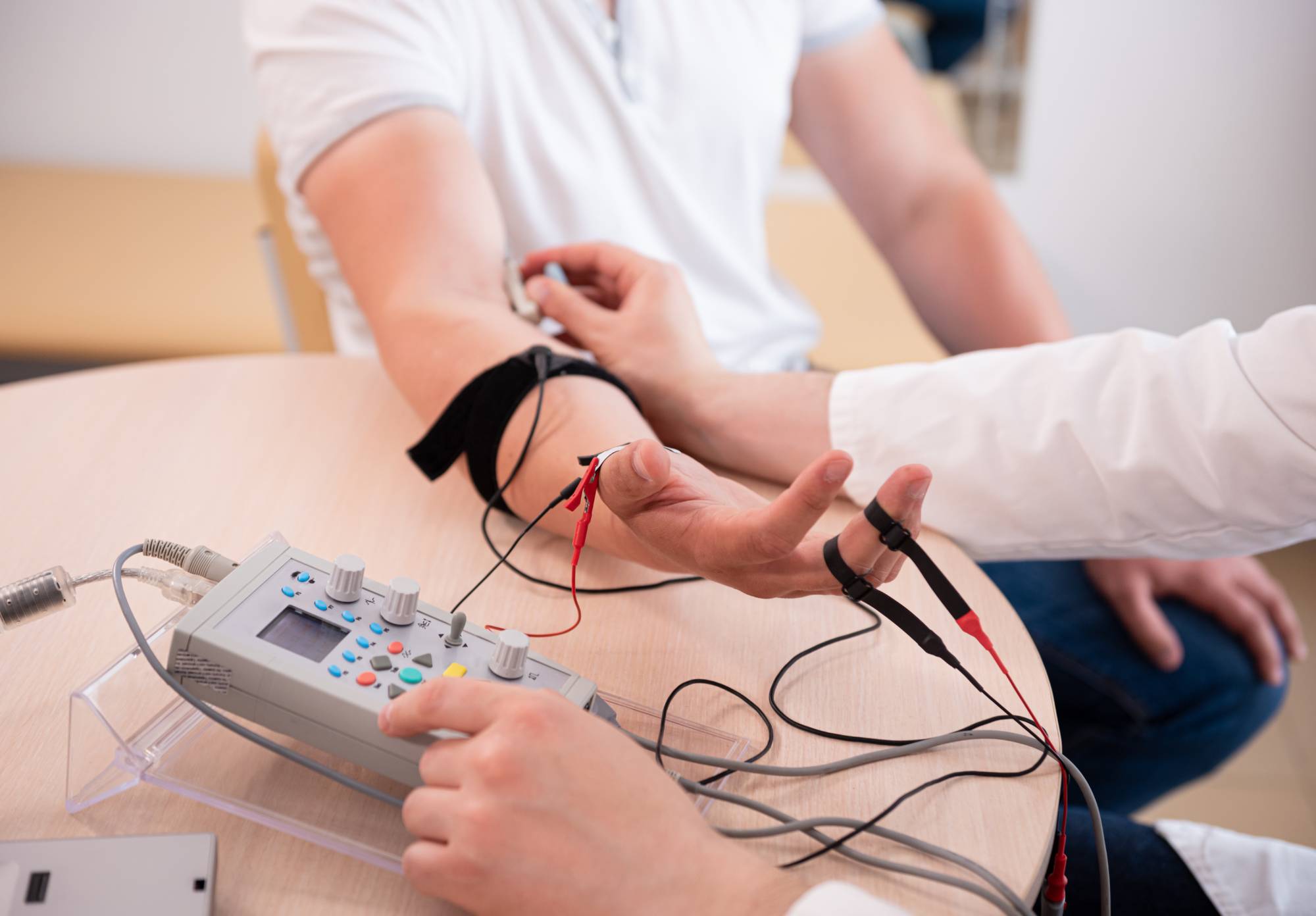Precise EMG testing that pinpoints exactly what’s causing your numbness, tingling, or muscle weakness.

Reviews

You’ve been dealing with unexplained symptoms for weeks or months. The numbness in your hands keeps you awake at night. The tingling in your feet makes walking uncomfortable. Your doctor suspects nerve damage, but you need proof.
EMG testing gives you that proof. This diagnostic test measures the electrical activity in your muscles and nerves, showing exactly where the problem lies. No more guessing. No more wondering if the pain is “all in your head.”
When you know what you’re dealing with, you can make informed decisions about treatment. Whether it’s carpal tunnel syndrome, sciatica, or diabetic neuropathy, accurate diagnosis is the first step toward getting your life back.
NY Spine Medicine has been serving Glen Rock and Northern New Jersey for years, specializing in spine and nerve conditions that affect your daily life. Our physicians are board-certified with extensive training in electrodiagnostic medicine.
We’ve performed thousands of EMG tests, interpreting results for conditions ranging from common carpal tunnel syndrome to complex neurological disorders. We use advanced equipment that provides clearer, more accurate readings than older technology.
Located right in Glen Rock, you don’t need to travel to Manhattan or deal with hospital parking. Our focus stays on you and getting the answers you need.

The EMG test has two parts: nerve conduction study and electromyography. First, small electrodes are placed on your skin over the nerves being tested. Mild electrical pulses measure how fast and strong your nerve signals travel.
Next, a thin needle electrode is inserted into specific muscles to record their electrical activity. You’ll be asked to relax the muscle, then contract it gently. The needle detects whether your muscles respond normally to nerve signals.
The entire process takes 30 to 60 minutes, depending on how many areas need testing. Most people describe the sensation as uncomfortable but tolerable. Results are available immediately, and you’ll receive a detailed explanation of what the findings mean for your condition.

Ready to get started?
Our EMG testing at NY Spine Medicine includes both electromyography and nerve conduction studies in one appointment. This comprehensive approach tests multiple nerve pathways and muscle groups to identify the exact location and severity of nerve damage.
Common conditions we diagnose include carpal tunnel syndrome, ulnar neuropathy, radiculopathy, peripheral neuropathy, and myopathy. Our detailed report shows nerve conduction velocities, muscle response patterns, and specific areas of concern.
Glen Rock residents appreciate the convenience of local testing without sacrificing quality. We accept most major insurance plans, and our staff handles prior authorization requirements. You’ll receive copies of all results for your records and to share with other healthcare providers.

New York:
Florida:
Support